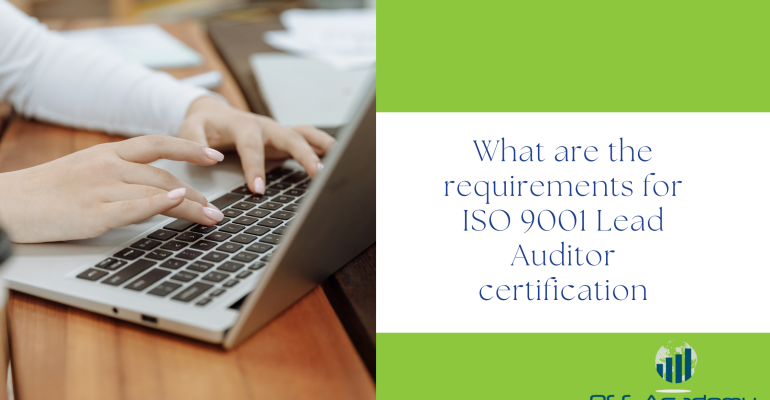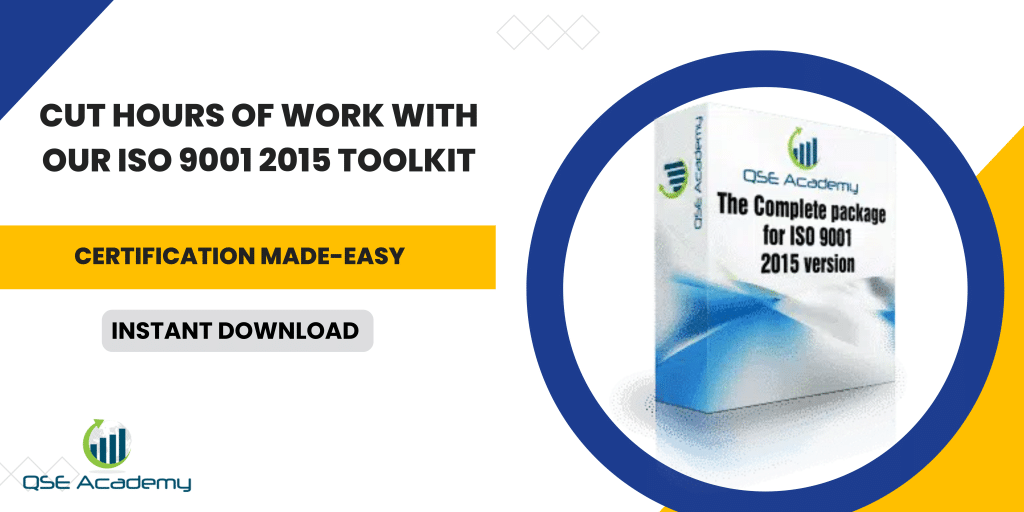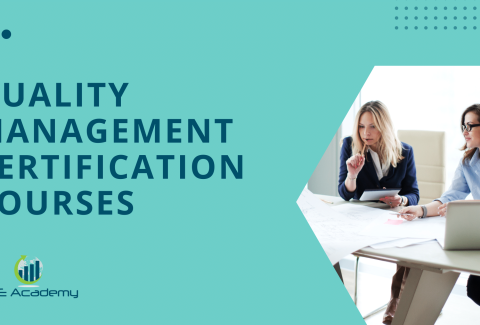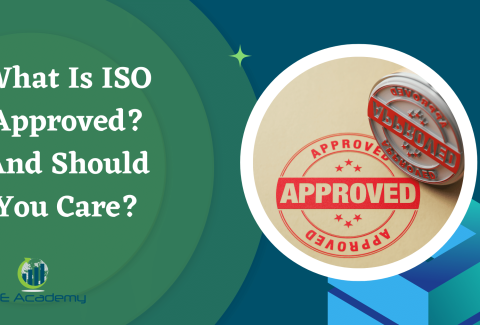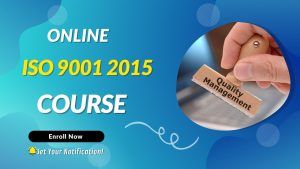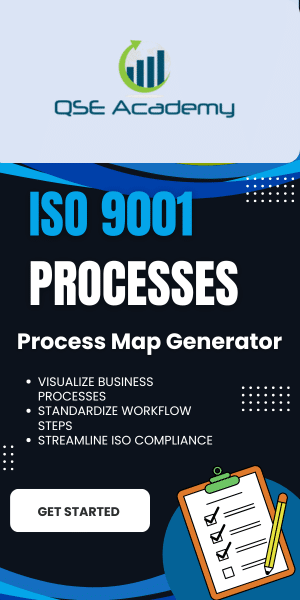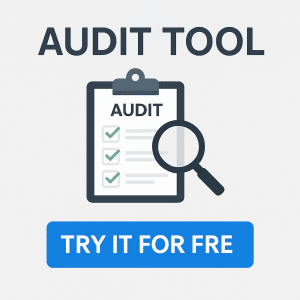What are the requirements for ISO 9001 Lead Auditor certification?
Last Updated on October 13, 2025 by Hafsa J.
What are the requirements for ISO 9001 Lead Auditor certification?
So, you’re thinking about becoming an ISO 9001 Lead Auditor? That’s a fantastic goal! Whether you’re looking to advance your career, help organizations improve their quality management systems, or simply expand your expertise, getting ISO 9001 Lead Auditor certification is a major step in the right direction.
But let’s be honest—figuring out the exact requirements can feel a bit overwhelming. Do you need prior auditing experience? Is formal training required? What about exams? If you’re asking yourself these questions, don’t worry—you’re not alone!
In this guide, we’re going to break everything down in a clear and simple way. We’ll walk through what an ISO 9001 Lead Auditor does, what qualifications you need, and the steps to earning your ISO 9001 Lead Auditor certification. By the end of this, you’ll have a solid understanding of what it takes and how to get started.
Let’s dive in!
What Is an ISO 9001 Lead Auditor?
Before we dive into the requirements, let’s take a step back—what exactly does an ISO 9001 Lead Auditor do? If you’re considering ISO 9001 Lead Auditor certification, it’s important to understand the role and why it matters.
Think of an ISO 9001 Lead Auditor as the person who makes sure a company is actually following the ISO 9001 standard. Organizations get ISO 9001 certified to prove they have a strong quality management system in place. But here’s the thing—just saying they follow the rules isn’t enough. Someone needs to check that they’re actually doing what they claim. That’s where a Lead Auditor comes in.
As an ISO 9001 Lead Auditor, your job is to assess a company’s processes, policies, and documentation to ensure they meet ISO 9001 requirements. You’ll conduct audits, interview employees, review records, and identify areas where improvements are needed. And since you’ll be leading the audit team, you’ll also need strong leadership and communication skills.
Why is this important? Because businesses rely on ISO 9001 Lead Auditor certification to maintain credibility. If a company can’t pass an audit, they risk losing their certification—and that can affect customer trust, contracts, and even revenue. That’s why trained, certified auditors are in high demand!
So, if you’re aiming for ISO 9001 Lead Auditor certification, you’re preparing for a career that’s not just about paperwork—it’s about making a real impact on businesses and their ability to deliver high-quality products and services. Sounds exciting, right? Let’s move on to what it takes to become one!
The Key Requirements for ISO 9001 Lead Auditor Certification
Now that we know what an ISO 9001 Lead Auditor does, let’s talk about what it takes to become one. Getting your ISO 9001 Lead Auditor certification isn’t as simple as taking a quick test—it requires a mix of knowledge, training, and practical experience. But don’t worry! If you’re serious about it, the path is straightforward, and I’ll break it down step by step.
To earn your ISO 9001 Lead Auditor certification, you’ll need to meet several key requirements:
1. Understanding ISO 9001 and Quality Management Principles
First things first—you need a solid understanding of the ISO 9001 standard itself. This certification isn’t just about knowing how to conduct audits; it’s about making sure companies comply with ISO 9001’s quality management principles.
At its core, ISO 9001 is about helping businesses create structured, efficient, and customer-focused processes. To be an effective ISO 9001 Lead Auditor, you’ll need to understand key concepts like:
- The Plan-Do-Check-Act (PDCA) cycle – a method for continuous improvement.
- Risk-based thinking – identifying potential issues before they happen.
- Process approach – ensuring different business activities work together efficiently.
If these terms sound unfamiliar, don’t worry—most ISO 9001 Lead Auditor certification training courses will cover them in detail. The important thing is to be ready to apply these principles in real-world auditing situations.
2. Meeting Educational and Professional Experience Criteria
While there’s no strict degree requirement, most certifying bodies prefer candidates who have some background in quality management, auditing, or a related field. The more experience you have, the smoother your certification process will be.
Here’s what typically helps:
A few years of experience in quality management or related roles.
Some exposure to internal audits (even if they’re informal).
A basic understanding of business processes and compliance requirements.
If you don’t have experience yet, don’t worry! Some training providers allow beginners to take the course, and you can build up your auditing experience afterward.
3. Completing an Approved ISO 9001 Lead Auditor Training Course
One of the biggest steps in earning your ISO 9001 Lead Auditor certification is completing a recognized Lead Auditor training course. This is a structured program (usually 4-5 days long) that teaches you everything you need to know about leading an audit.
During this training, you’ll learn:
The audit process from start to finish.
How to plan, conduct, and report audits effectively.
Techniques for interviewing employees and reviewing documents.
How to identify nonconformities and suggest corrective actions.
It’s important to take this course from an accredited provider, such as IRCA (International Register of Certificated Auditors) or Exemplar Global. Choosing a recognized training body ensures that your ISO 9001 Lead Auditor certification will be accepted worldwide.
4. Passing the ISO 9001 Lead Auditor Exam
Once you complete your training, you’ll need to pass an exam to demonstrate your knowledge. The exam usually includes:
Multiple-choice questions on ISO 9001 principles and auditing techniques.
Scenario-based questions where you analyze real-world audit situations.
The test isn’t impossible, but it does require preparation. Make sure to review your course materials, practice sample questions, and understand how audits are conducted in different industries.
5. Demonstrating Audit Competency Through Practical Assessments
Finally, you’ll need to prove that you can apply what you’ve learned in real auditing situations. Some certification programs require you to participate in:
Mock audits (during training) to test your skills.
Real-world audits (after certification) to gain hands-on experience.
Once you’ve met all these requirements, you can apply for your official ISO 9001 Lead Auditor certification and start leading audits professionally!
The process may seem like a lot, but remember—every step prepares you to be an effective auditor. Now that we’ve covered the requirements, let’s walk through the exact steps to becoming certified!
How to Get ISO 9001 Lead Auditor Certification Step by Step
Now that you know the key requirements, let’s walk through the exact steps to earning your ISO 9001 Lead Auditor certification. Think of this as your personal roadmap—follow each step, and you’ll be on your way to becoming a certified ISO 9001 Lead Auditor in no time!
Step 1: Check Your Eligibility
Before you jump into training, take a moment to assess whether you meet the basic requirements. Ask yourself:
Do I have some experience in quality management or auditing?
Am I familiar with basic business processes and compliance requirements?
Do I have a keen eye for detail and strong analytical skills?
Don’t worry if you’re new to auditing—many people start with an ISO 9001 Internal Auditor course first before moving on to the full ISO 9001 Lead Auditor certification. If you’re already working in quality management, you’re in a great position to get started.
Step 2: Choose an Accredited ISO 9001 Lead Auditor Training Course
The most important part of your journey is selecting a recognized Lead Auditor training course. This is where you’ll learn everything you need to know about leading audits, applying ISO 9001 principles, and handling real-world audit situations.
When choosing a course, make sure it’s accredited by a well-known body, such as:
IRCA (International Register of Certificated Auditors)
Exemplar Global
Other recognized certification bodies
A standard ISO 9001 Lead Auditor training course lasts about 4 to 5 days and is packed with interactive sessions, case studies, and mock audits to help you build real skills.
Step 3: Attend and Complete the Training
Once you’ve chosen your training provider, it’s time to dive in! The course will cover:
The ISO 9001 standard and its requirements
Audit principles, techniques, and best practices
How to plan and conduct a successful audit
How to identify and report nonconformities
Handling difficult audit situations professionally
One of the best things about ISO 9001 Lead Auditor certification training is the hands-on approach. You won’t just be listening to lectures—you’ll be participating in role-playing exercises, group discussions, and simulated audits to build your confidence.
Step 4: Pass the ISO 9001 Lead Auditor Exam
At the end of your training, you’ll need to take and pass an exam to prove your understanding of ISO 9001 auditing. The exam typically includes:
Multiple-choice questions about ISO 9001 requirements and auditing techniques
Scenario-based questions that test your ability to handle audit situations
Don’t stress too much! If you’ve paid attention during training and reviewed your materials, you’ll be well-prepared. Some training providers also offer practice exams to help you feel confident before the real test.
Step 5: Gain Real-World Audit Experience (If Required)
Depending on the certification body you choose, you may need to log a certain number of audit hours before you’re officially certified. This usually means:
Participating in real audits as an observer or team member
Leading an audit under the supervision of an experienced ISO 9001 Lead Auditor
If you’re already working in quality management, you may be able to fulfill this requirement within your company. If not, some training providers offer mentorship programs to help you gain experience.
Step 6: Apply for Your ISO 9001 Lead Auditor Certification
Once you’ve completed your training, passed the exam, and gained the required audit experience, you’re ready to apply for your official ISO 9001 Lead Auditor certification!
This usually involves:
Submitting your training and exam records
Providing proof of audit experience (if required)
Registering with an accredited certification body
After approval, congratulations—you’re now a certified ISO 9001 Lead Auditor! 🎉 You can now lead audits, help businesses improve their quality systems, and open doors to exciting career opportunities in quality assurance and compliance.
What’s Next?
Earning your ISO 9001 Lead Auditor certification is just the beginning. To stay certified, you’ll need to keep your skills up to date, take refresher courses, and participate in continued professional development. But the effort is well worth it!
Now that you know exactly how to become an ISO 9001 Lead Auditor, let’s tackle some frequently asked questions to clear up any lingering doubts.
Frequently Asked Questions About ISO 9001 Lead Auditor Certification
By now, you have a clear roadmap for earning your ISO 9001 Lead Auditor certification, but you might still have some lingering questions. No worries! Let’s tackle some of the most common ones to help you feel even more confident about your journey.
How long does it take to become an ISO 9001 Lead Auditor?
Great question! The time it takes to earn your ISO 9001 Lead Auditor certification depends on a few factors, like your background, experience, and the training provider you choose. Here’s a rough breakdown:
ISO 9001 Lead Auditor training course – Typically 4 to 5 days
Exam preparation and completion – Can take a few days to a couple of weeks, depending on your study pace
Audit experience (if required) – This varies, but some certifying bodies may ask for logged audit hours before granting full certification
In total, you could be fully certified within a few weeks to a couple of months if you follow the steps efficiently!
Is ISO 9001 Lead Auditor certification valid worldwide?
Yes! One of the biggest advantages of earning an ISO 9001 Lead Auditor certification is that it’s recognized internationally. Since ISO 9001 is a global standard, businesses around the world rely on certified Lead Auditors to maintain compliance.
However, the key is choosing a certification from an accredited organization like:
IRCA (International Register of Certificated Auditors)
Exemplar Global
Other well-known certification bodies
If you go with a reputable training provider, your ISO 9001 Lead Auditor certification will be valid anywhere, opening doors to global career opportunities.
Do you need to renew your ISO 9001 Lead Auditor certification?
Yes, like most professional certifications, your ISO 9001 Lead Auditor certification isn’t a one-and-done deal. You’ll need to keep it up to date by:
Participating in continuing professional development (CPD) – This could mean attending refresher courses or additional training.
Maintaining audit logs – Some certifying bodies require you to show proof of ongoing audit work.
Periodic recertification – Depending on the certification provider, you might need to renew your certification every 3 to 5 years.
The good news? As long as you stay active in the auditing field and continue learning, maintaining your ISO 9001 Lead Auditor certification won’t be difficult!
Can I become an ISO 9001 Lead Auditor without prior auditing experience?
Yes, but with a few conditions. Some training providers allow individuals to take an ISO 9001 Lead Auditor training course even if they don’t have prior auditing experience. However, to become fully certified, you may need to:
Start with an ISO 9001 Internal Auditor certification to gain basic audit knowledge.
Participate in mock audits during training to develop practical skills.
Work under the supervision of a certified Lead Auditor to gain real-world experience.
If you’re completely new to auditing, don’t worry! Many people transition into this role from quality management, compliance, or process improvement backgrounds. The key is to gain hands-on exposure, and your ISO 9001 Lead Auditor certification will take care of the rest.
Is ISO 9001 Lead Auditor a good career choice?
Absolutely! Becoming a certified ISO 9001 Lead Auditor can open up exciting career opportunities in industries like:
Manufacturing – Ensuring production processes meet quality standards.
Healthcare – Auditing hospitals and healthcare providers for compliance.
IT & Tech – Helping software and IT firms maintain quality systems.
Construction – Ensuring quality standards in large-scale projects.
Plus, businesses are always looking for skilled ISO 9001 Lead Auditors to help them maintain certification, so job demand remains strong worldwide. Whether you want to work as an independent auditor, join a consulting firm, or advance in your current role, ISO 9001 Lead Auditor certification can take your career to the next level!
Final Thoughts
Earning your ISO 9001 Lead Auditor certification might seem like a big step, but it’s completely achievable with the right mindset and preparation. Whether you’re looking to boost your career, expand your skill set, or help businesses improve their quality systems, this certification is a valuable asset.
So, are you ready to take the plunge? 🚀 If so, start by choosing an accredited training provider and take the first step toward becoming a certified ISO 9001 Lead Auditor today!
Conclusion: Is ISO 9001 Lead Auditor Certification Right for You?
So, now you know exactly what it takes to earn your ISO 9001 Lead Auditor certification—from understanding ISO 9001 principles to completing training, passing the exam, and gaining hands-on audit experience. But the big question is: Is it the right path for you?
If you’re someone who enjoys problem-solving, improving business processes, and helping organizations meet quality standards, then becoming a certified ISO 9001 Lead Auditor could be a game-changer for your career. This certification not only opens up job opportunities worldwide but also gives you the expertise to make a real impact on businesses striving for excellence.
Yes, the process takes effort, but remember—every step you take brings you closer to becoming a trusted expert in quality auditing. Whether you want to work independently, join a consulting firm, or advance within your current company, your ISO 9001 Lead Auditor certification is a valuable investment in your future.
Now, it’s your turn! If you’re ready to take the first step, start by researching accredited training providers and enrolling in a Lead Auditor course. Your journey to becoming an ISO 9001 Lead Auditor starts today—so why wait?
Ready to move from ISO 9001 theory to implementation?
Get the exact tools you need to write your documentation, train your team, map your processes, and pass your audit—without wasted time or guesswork.

make ISO standards less intimidating and more approachable for everyone.
Whether it’s ISO 9001, ISO 22000, or the cosmetics-focused ISO 22716, I’ve spent my career
turning complex jargon into clear, actionable steps that businesses can actually use.
I’m not here to call myself an expert—I prefer “enthusiast” because I truly love what I do.
There’s something incredibly rewarding about helping people navigate food safety and quality management systems
in a way that feels simple, practical, and even enjoyable.
When I’m not writing about standards, you’ll probably find me playing Piano 🎹, connecting with people, or diving into my next big project💫.
I’m an engineer specialized in the food and agricultural industry
I have a Master’s in QHSE management and over 12 years of experience as a Quality Manager
I’ve helped more than 15 companies implement ISO 9001, ISO 22000, ISO 22716, GMP, and other standards
My clients include food producers, cosmetics manufacturers, laboratories, and service companies
I believe quality systems should be simple, useful, and efficient.

